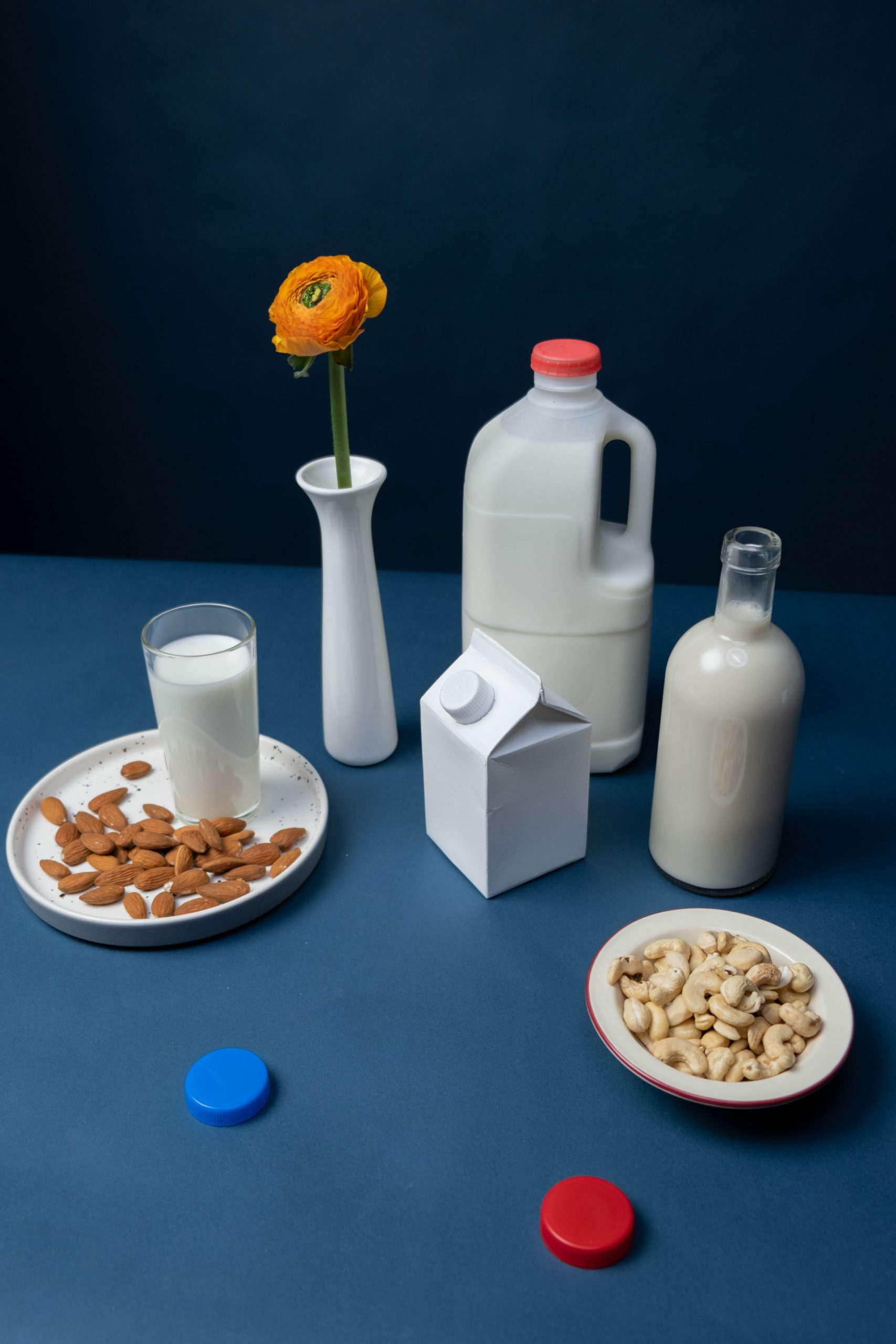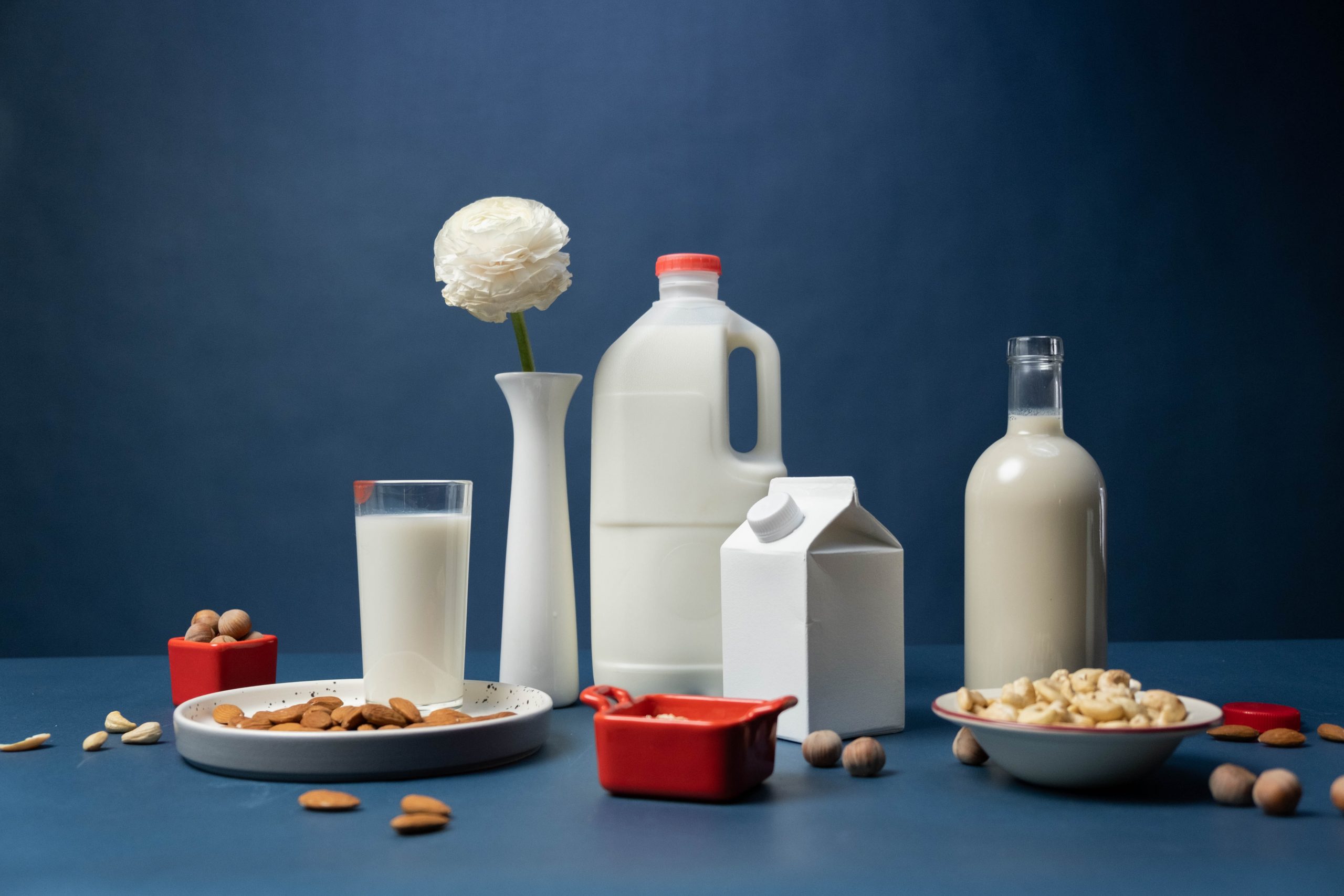Everything you need to know about milk that’s not from a cow.
Written by
Jonathan Steedman
Let’s talk about alternative milks aka alt-milks, or “Mylks”.
Before we begin, it’s important to remember that cow’s milk is very nutritious. It contains excellent amounts of protein, calcium and B vitamins. But you can absolutely choose not to have it, particularly if you don’t like it, or it doesn’t like you. This means you’re going to need a replacement to use in your morning oats and coffee (unless you like black coffee and have your oats with water in which case... you’re probably beyond help).
Production of plant milks differs based on the source material, but essentially through some variation of grinding, soaking and filtration, “mylks” are born. Unfortunately, this process means that plant-based milks are pretty much just water that once came into contact with their namesake, so if it’s going to make up a large part of your daily diet, I would look for a brand that has been fortified with some vitamins and minerals.

01
Almond Milk
The OG of the genre. Everyone seems to have their favourite, so I’m not going to risk inciting a riot by mentioning any specific brands, even ones that might be so good.
This is easily the lowest calorie option of the bunch, so if that’s important to you, almond milk just might be the one. If you’re allergic to tree nuts, it’s probably not.
02
Cashew Milk
Cashew milk is very similar to almond milk, except instead of almonds, they use cashews. Unbelievable, I know. Nutritionally, it’s basically the same. Follow your tastebuds!
03
Coconut Milk
Look I’m going to level with you. Coconut is not some crazy superfood that’s going to let you live forever. It’s actually kind of high in saturated fat, which is not something we want tons of in our diet. If you really can’t stand any other plant milks then go for the coconut milk, but otherwise I’d leave it on the shelf.
04
Rice Milk
Although some of the other milk alternatives contain common allergens (soy and tree nuts), rice milk tends to be the safest of the bunch, so if you struggle with a few of these allergens this might be the one for you!
It’s also extremely high in carbohydrate, and low in most other things. This doesn’t necessarily make it bad, but it is something to be aware of if you’re having to manage your blood sugars.
05
Oat Milk
Similar to rice milk, oat milk is much higher in carbohydrate than the other options on the list. It’s also probably not a great option for people with coeliac disease, as the risk of gluten cross-contamination during the production of oat milk is pretty high.
One nice little bonus is the beta-glucan fibre it contains, which is a particularly good at lowering cholesterol. That being said, it’s not an earth-shattering amount, so I wouldn’t go getting too excited.
Apparently, it also foams well which is exciting if you’re into latte art! I am not.
06
Soy Milk
We’re officially moving into the “high protein” part of the list. Although plant milks are typically low in protein, soy milk is jam packed with the stuff. If you’re struggling to hit your protein goals each day, using this to drown your cereal or mix through your smoothie is a great way to boost your intake.
Just for the record, the rumours you’ve heard about soy are untrue. It will not cause your muscles to shrivel up and die or give you cancer.
07
Pea Milk (AKA “Like Milk”)
Pea milk is the new kid on the block, and is another great source of protein. It’s also pretty low calorie, unless you want to opt for the sweetened or chocolate option (no judgement here).
It’s probably got one of the best nutritional profiles of the bunch, but it can be a bit pricey.
So there you have it. Remember that you want a low-calorie option that still has a bit of body – I’d go for a fortified almond milk. If you're struggling to hit your protein – go the pea milk (if you can find it/it’s affordable) or a light, fortified soy milk.

Thanks for reading! Why not subscribe to our mailing list for more great content.

